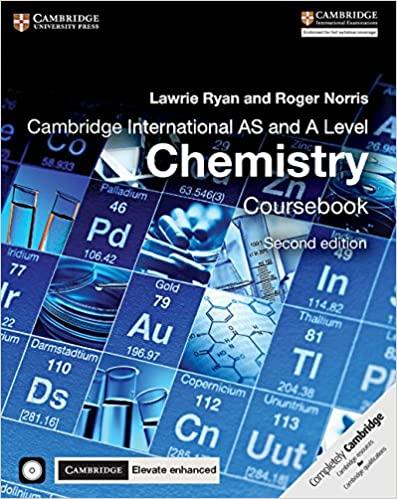a. Hydrogen chloride and ammonia both ionise in water: HCl + H 2 O H 3 O+
Question:
a. Hydrogen chloride and ammonia both ionise in water:
HCl + H2O H3O+ + Cl– equation 1
NH3 + H2O NH4++ OH– equation 2
i. State the name of the ion H3O+.
ii. Identify the acid and the base on the left-hand side of each equation.
iii. By referring to equation 1 and equation 2, explain why water is described as being amphoteric.
b. When dissolved in an organic solvent, hydrogen chloride reacts with hydrogen iodide as follows:
HCl + HI ⇌ H2Cl+ + I–
i. Use the Bronsted–Lowry theory of acids and bases to explain which reactant is the acid and which reactant is the base.
ii. Identify which of the products is the conjugate acid and which is the conjugate base of the substances you have identified in part b i.
c. Hydrochloric acid is a strong acid but ethanoic acid, CH3COOH, is a weak acid.
i. Explain the difference between a strong acid and a weak acid.
ii. Suggest a value of the pH for a 0.1 mol dm–3 solution of ethanoic acid in water.
iii. Write a chemical equation to show the reaction when ethanoic acid donates a proton to water.
Step by Step Answer:

Cambridge International AS And A Level Chemistry Coursebook
ISBN: 9781316637739
2nd Edition
Authors: Lawrie Ryan, Roger Norris





